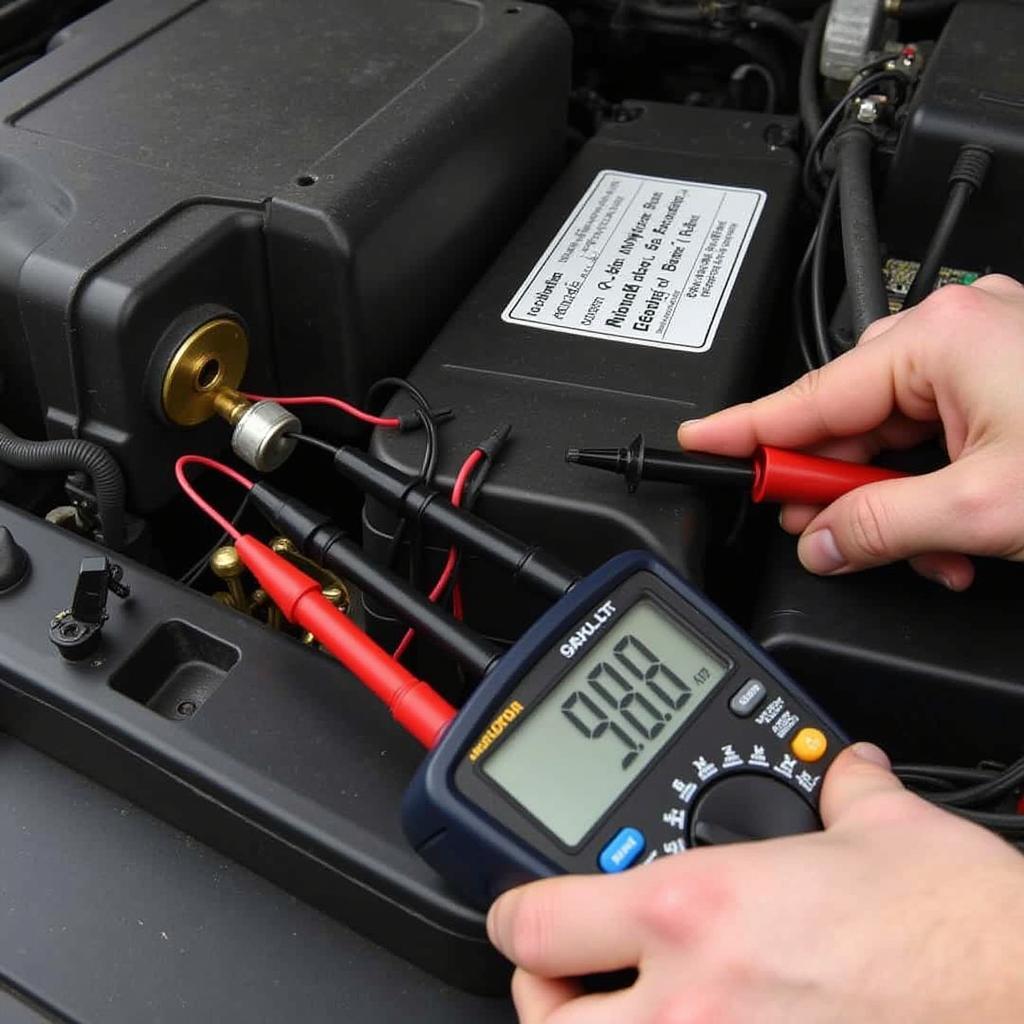In today’s world, car theft is an unfortunate reality. That’s why car manufacturers equip vehicles with anti-theft devices, sophisticated security systems designed to deter theft and protect your vehicle. But what exactly constitutes an anti-theft device, and how do these systems work to keep your car safe? Let’s delve into the intricacies of your car’s security detail.
Understanding Anti-theft Devices: More Than Just an Alarm
While many people associate car alarms with anti-theft systems, these devices encompass a much broader spectrum of technology. From basic mechanical deterrents to advanced electronic immobilizers, anti-theft devices work in various ways to prevent unauthorized access and theft.
Types of Anti-theft Devices:
- Immobilizers: These systems prevent the engine from starting without the presence of a coded key or fob.
- Alarm Systems: Audible and visual alarms are triggered by unauthorized entry attempts, deterring thieves and alerting the owner.
- Steering Wheel Locks: A visible physical deterrent, these locks make it difficult to steer the vehicle.
- GPS Tracking Systems: These systems allow authorities to track the vehicle’s location in case of theft.
- Kill Switches: These hidden switches disable the vehicle’s electrical system, preventing the engine from starting.
How Anti-theft Devices Work: A Glimpse Under the Hood
The inner workings of an anti-theft device depend on the type of system installed. Let’s break down some common mechanisms:
-
Immobilizers: These systems utilize a transponder chip embedded in the car key. When you insert the key, the chip communicates with the vehicle’s Engine Control Unit (ECU). If the codes match, the ECU allows the engine to start.
-
Alarm Systems: Sensors located throughout the vehicle detect forced entry attempts, broken windows, or unusual vibrations. Once triggered, the alarm system activates sirens, flashing lights, or both.
-
GPS Tracking: These systems use satellite signals to pinpoint the vehicle’s real-time location, transmitting this information to a monitoring service or the owner’s mobile device.
Common Issues and Troubleshooting
Anti-theft systems, like any electronic component, can encounter issues. Here are some common problems:
- Dead Battery in Key Fob: A drained battery in your key fob can prevent the immobilizer from disengaging. Replacing the battery is a simple fix.
- Malfunctioning Sensors: Faulty door, hood, or trunk sensors can trigger false alarms. Inspection and replacement of malfunctioning sensors are crucial.
- Wiring Problems: Loose or damaged wiring can disrupt communication between system components, leading to malfunctions.
FAQs about Anti-theft Devices
Does my car have an active anti-theft device?
Most modern vehicles come equipped with factory-installed anti-theft systems. Refer to your owner’s manual or contact your car manufacturer for specific information about your vehicle’s security features. You can also explore our resources to learn more about whether your car has an active anti-theft device.
What is considered an anti-theft device by insurance companies?
Insurance companies often offer discounts for vehicles with anti-theft devices. However, the specific requirements vary. Generally, immobilizers, alarm systems, and GPS tracking systems are recognized as valid anti-theft devices. For more details on what constitutes an anti-theft device according to insurance providers, check out this informative article: Which anti-theft device does this vehicle have GEICO?.
Can I install an aftermarket anti-theft device?
Yes, numerous aftermarket anti-theft devices are available, ranging from basic steering wheel locks to sophisticated GPS tracking systems.
Can an anti-theft device drain my car battery?
While rare, a malfunctioning anti-theft system can potentially drain your car battery. If you experience frequent battery drain, it’s essential to have your system inspected by a qualified technician.
Cardiagtech: Your Partner in Automotive Diagnostics and Repair
Understanding your car’s anti-theft system is crucial for its security. At Cardiagtech, we provide advanced diagnostic and programming solutions to keep your vehicle running smoothly. If you’re experiencing issues with your car’s anti-theft system or require professional assistance, contact Cardiagtech.
Expert Insight: “Regular maintenance and inspection of your car’s anti-theft system are essential for optimal performance,” advises Dr. Emily Carter, automotive electrical engineer and author of “The Complete Guide to Automotive Electronics“. “Early detection of potential issues can prevent unexpected malfunctions and ensure the security of your vehicle.”
Conclusion
Anti-theft devices are indispensable components of modern vehicles, providing a crucial layer of protection against theft. By understanding the different types of systems, their functionality, and common issues, you can make informed decisions to safeguard your vehicle. Remember, staying proactive and seeking professional help when needed ensures your car remains secure.


